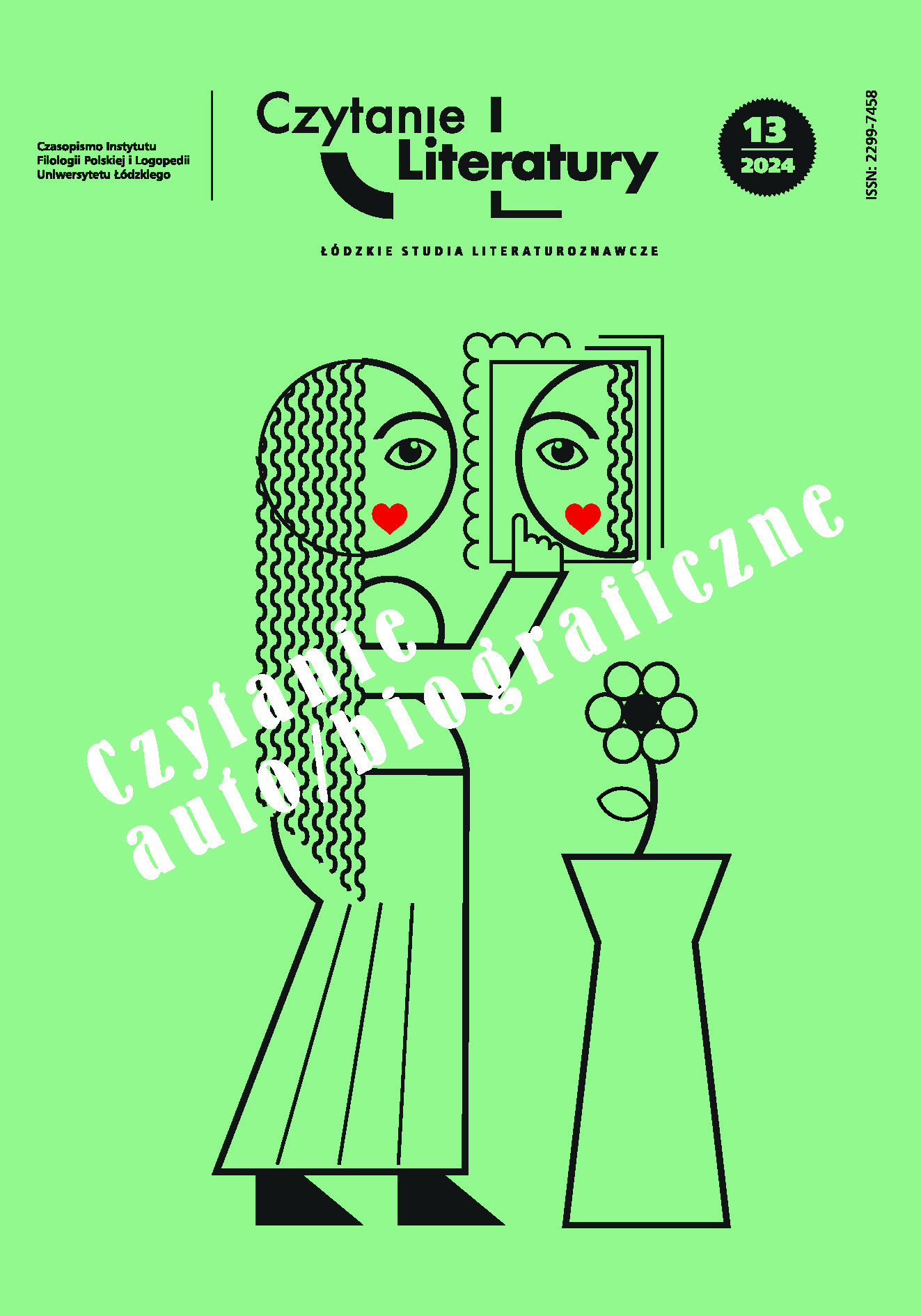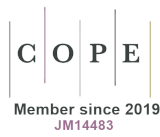The Auto/biographical Nature of Ukrainian Women’s Literature on the War in Donbas
DOI:
https://doi.org/10.18778/2299-7458.13.07Słowa kluczowe:
war in Donbas, Ukrainian women writers, auto/biography, documentary account, heterobiography, language choiceAbstrakt
In the close reading of Natal’ya Vorozhbit’s drama Bad Roads (2017), Yevgeniya Podobna’s book of stories and memoirs titled Girls Cutting Their Locks (2018), and Tamara Duda’s novel Daughter (2019), the author of the article examines the relations between subject and object of the Donbas war texts in the framework of their creation, auto/biographic nature, gender optics, and therapeutic effect. The goal of the study is to analyze how auto/biographical narratives employ actualization of life, leading to the fictionalization of drama and prose texts, which results in heterobiography or synthesis of auto/biographical narratives with heterobiographies. Mostly processed by professional writers, the documentary accounts of military experience of women characters convey the evidence of Zeitgeist, which forms a unique writing in modern war literature. The paper discusses the perspective of women, forms of undermining patriarchy, and rhetoric of “national autobiography” along with self-consciousness and self-reflexivity as markers of auto/biographical texts of Ukrainian women writers of the period in the selected texts.
Pobrania
Bibliografia
Butler, Judith. Giving an Account of Oneself. New York: Fordham University Press, 2005. https://doi.org/10.5422/fso/9780823225033.001.0001
Google Scholar
DOI: https://doi.org/10.5422/fso/9780823225033.001.0001
Cooke, Jennifer. Contemporary Feminist Life-Writing: the New Audacity. Loughborough: Cambridge University Press, 2020. https://doi.org/10.1017/9781108779692
Google Scholar
DOI: https://doi.org/10.1017/9781108779692
Duda, Tamara. Daughter. English translation by Daisy Gibbons. Kyiv: Bilka Publishing, 2021.
Google Scholar
Erdinast-Vulcan, Daphna. “Heterobiography: a Bakhtinian Perspective on Autobiographical Writing.” Life Writing, vol. 15, issue 3 (2018): 413–430. https://doi.org/10.1080/14484528.2018.1475055
Google Scholar
DOI: https://doi.org/10.1080/14484528.2018.1475055
Fakundiny, Lydia. “Autobiography and the Essay.” In Encyclopedia of Life Writing (1): A–K. Edited by Margaretta Jolly, 79–81. London: Routledge, 2001.
Google Scholar
Flynn, Molly. “Ivan Vyrypaev and Natalia Vorozhbyt. Language, memory, and cultural mythology in Russian and Ukrainian new drama.” In Contemporary European Playwrights. Edited by Maria M. Delgado, Bryce Lease, and Dan Rebellato, 226–243. Abingdon: Routledge, 2020. https://doi.org/10.4324/9781315111940-12
Google Scholar
DOI: https://doi.org/10.4324/9781315111940-12
Gerund, Katharina. “Home Front Autobiographies of the ‘War on Terror’: Narrative Liminality, Tacit Knowledge, and Affective Labor.” In Exploring Narrative Liminality and Its Cultural Work. Edited by Sebastian M. Herrmann, Katja Kanzler, Stefan Schubert, 187-201. Bielefeld: transcript Verlag, 2022. https://doi.org/10.1515/9783839461303 (eBook)
Google Scholar
DOI: https://doi.org/10.1515/9783839461303-014
Kanzler, Katja. “Adaption and Self-expression in Julie/Julia.” In American Lives. Edited by Alfred Hornung, 369–380. Heidelberg: Verlag Winter, 2013.
Google Scholar
Miller, Nancy K. “I Killed My Grandmother: Mary Antin, Amos Oz, and the Autobiography of a Name.” Biography, vol. 30, issue 3 (2007): 319–341. https://doi.org/10.1353/bio.2007.0052
Google Scholar
DOI: https://doi.org/10.1353/bio.2007.0052
Podobna, Yevgeniya. Girls cutting their locks. A book of memories / the Russo-Ukrainian War. Translated by Mariia Kovalenko. Ukrainian Institute of National Remembrance, Kyiv: Luta Sprava Publishing, 2020. https://uinp.gov.ua/elektronni-vydannya/divchata-zrizayut-kosy-angliyskoyu-movoyu-girls-cutting-their-locks (eBook)
Google Scholar
Rewakowicz, Maria G. Ukraine’s Quest for Identity: Embracing Cultural Hybridity in Literary Imagination, 1991–2011. Lanham: Lexington Books, 2018.
Google Scholar
Strauch, Christian-Daniel; Molderf, Oksana. “Neue Helden zwischen Krieg und Krise.” In Zwischen Apokalypse und Aufbruch. Der Donbas-Krieg in ukrainischer Krisenliteratur. Edited by Christian-Daniel Strauch and Oksana Molderf, 7–17. Leipzig: Edition Hamouda, 2021.
Google Scholar
Temple, Judy Nolte. “Review: Theorizing the Personal, Personalizing Theory: Recent Works on Women’s Autobiography.” Rocky Mountain Review of Language and Literature, vol. 48, no. 2 (1994): 177–183. https://doi.org/10.2307/1347908
Google Scholar
DOI: https://doi.org/10.2307/1347908
Tippner, Anja; Laferl, Christopher F. “Einleitung.” In Texte zur Theorie der Biographie und Autobiographie. Edited by Anja Tippner and Christopher F. Laferl, 9–35. Stuttgart: Reclam, 2016.
Google Scholar
Vernon, Alex. “Military Autobiography.” In Encyclopedia of Life Writing (2): L–Z. Edited by Margaretta Jolly, 603–604. London: Routledge, 2001.
Google Scholar
Vorozhbit, Natalia. Bad roads. Translated by Sasha Dugdale. London: Nick Hern Books, 2017. https://doi.org/10.5040/9781784604424.00000002
Google Scholar
DOI: https://doi.org/10.5040/9781784604424.00000002
Wallо, Oleksandra. Ukrainian Women Writers and the National Imaginary: From the Collapse of the USSR to the Euromaidan, Toronto: University of Toronto Press, 2019. (eBook) https://doi.org/10.3138/9781487533090
Google Scholar
DOI: https://doi.org/10.3138/9781487533090
Winslow, Donald J. Life-Writing: a Glossary of Terms in Biography, Autobiography, and Related Forms. 2nd Edition. Honolulu: University of Hawai’i Press, 1995. https://doi.org/10.1515/9780824841119
Google Scholar
DOI: https://doi.org/10.1515/9780824841119
Валлє, Віра. Свобода та її вороги. Нотатки під час війни. Харків: ВД «Фабула», 2022 [Valle, Vira, Svoboda ta ïï vorogi. Notatki pìd časvìjni, Harkìv 2022] [in Ukrainian].
Google Scholar
Жадан, Сергій. “Наталія Ворожбит про Погані дороги, критику, іронію та людяність.” Говорить Жадан, 2020 [Žadan S., Govorit’ Žadan: “Natalìâ Vorožbit pro Poganì dorogi, kritiku, ìronìû ta lûdânìst’, 2020] [in Ukrainian]. https://youtu.be/c1GQyjxM2rI (access: 26.03.2024).
Google Scholar
Михед, Олександр. Подкаст «Станція 451» The Village Україна, #10 Наталка Ворожбит «[Кіборги», «Погані дороги», «Спіймати Кайдаша»]. Демони і Кайдаші, 2021 [Mihed, Oleksandr, Podkast «Stancìâ 451» The Village Ukraïna, #10 Natalka Vorožbit «[Kìborgi», «Poganì dorogi», «Spìjmati Kajdaša»]. Demoni ì Kajdašì, 2021] [in Ukrainian]. https://open.spotify.com/episode/6Xlu0pLdQXx5rzcPWB7nbq?si=dgpbz9bRS5evSnW4qp7zXw&nd=1 (access: 26.03.2024).
Google Scholar
Присівок, Дмитро В. “Топос війни в сучасній українській комбатантській прозі.” Література та культура Полісся. Філологічні науки, vol. 106, no. 20, (2022): 32–41. [Prisìvok, Dmitro V., “Topos vìjni v sučasnìj ukraïns’kìj kombatants’kìj prozì.” Lìteratura ta kul’tura Polìssâ, Serìâ Fìlologìčnì nauki, 2022, no. 106. № 20, C. 32–41] [in Ukrainian].
Google Scholar
DOI: https://doi.org/10.31654/2520-6966-2022-20f-106-32-41
Пухонська, Оксана. “Від ‘Іншого’ до ‘Свого’: літературна рецепція героя російсько-української війни в сучасних художніх текстах.” [Puhons’ka Oksana, “Vìd ‘Ìnšogo’ do ‘Svogo’: lìteraturna recepcìâ geroâ rosìjs’ko-ukraïns’koï vìjni v sučasnih hudožnìh tekstach”]. In Bohater utworu literackiego jako InNy w literaturze europejskiej po 1989 roku. Edited by Ludmiła Mnich, Oksana Blashkiv and Walentyna Krupowies, 68–79. Siedlce: Wydawnictwo Naukowe UPH, 2023 [in Ukrainian].
Google Scholar
Пухонська, Оксана. “Література війни на Донбасі як культурний простір зустрічі Свого / Чужого / Іншого.” [Puhons’ka, Oksana, “Lìteratura vìjni na Donbasì âk kul’turnij prostìr zustrìčì Svogo / Čužogo / Ìnšogo”]. In Inny/inność we współczesnej literaturze europejskiej. Edited by Ludmiła Mnich, Oksana Blashkiv and Walentyna Krupowies, 105–117. Siedlce: Wydawnictwo Naukowe UPH, 2022 [in Ukrainian].
Google Scholar
Pobrania
Opublikowane
Jak cytować
Numer
Dział
Licencja

Utwór dostępny jest na licencji Creative Commons Uznanie autorstwa – Użycie niekomercyjne – Bez utworów zależnych 4.0 Międzynarodowe.










